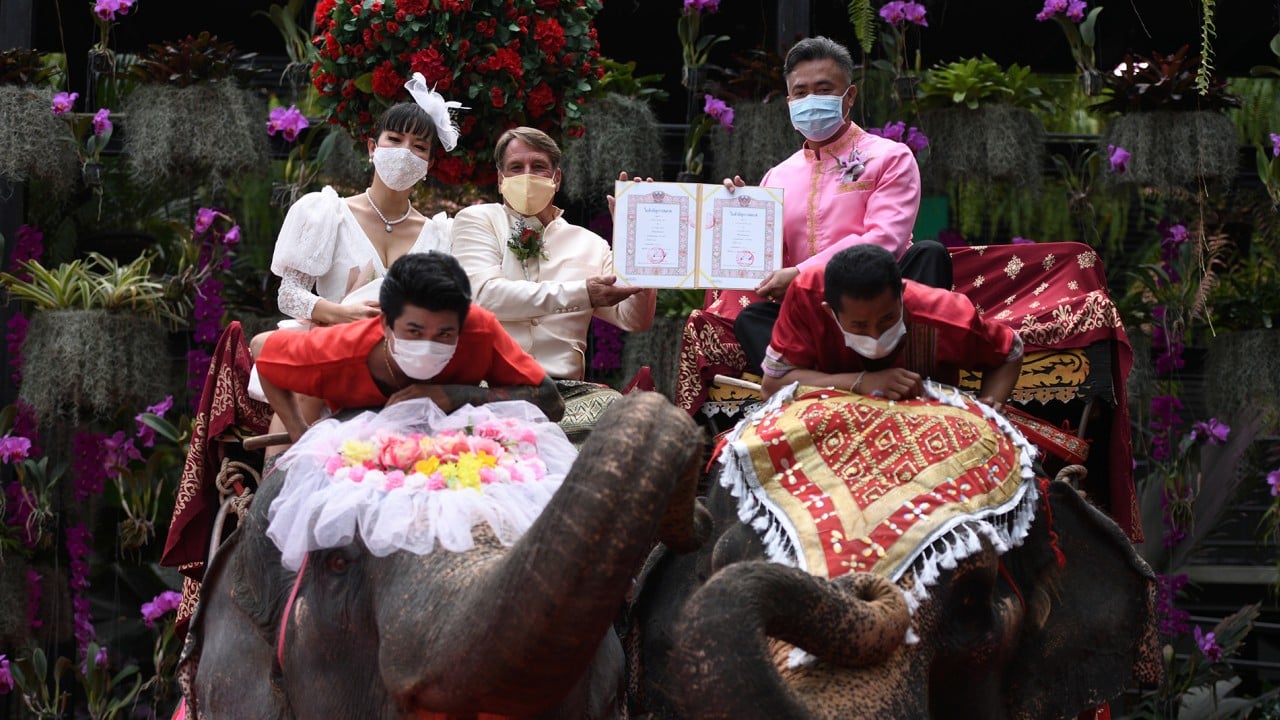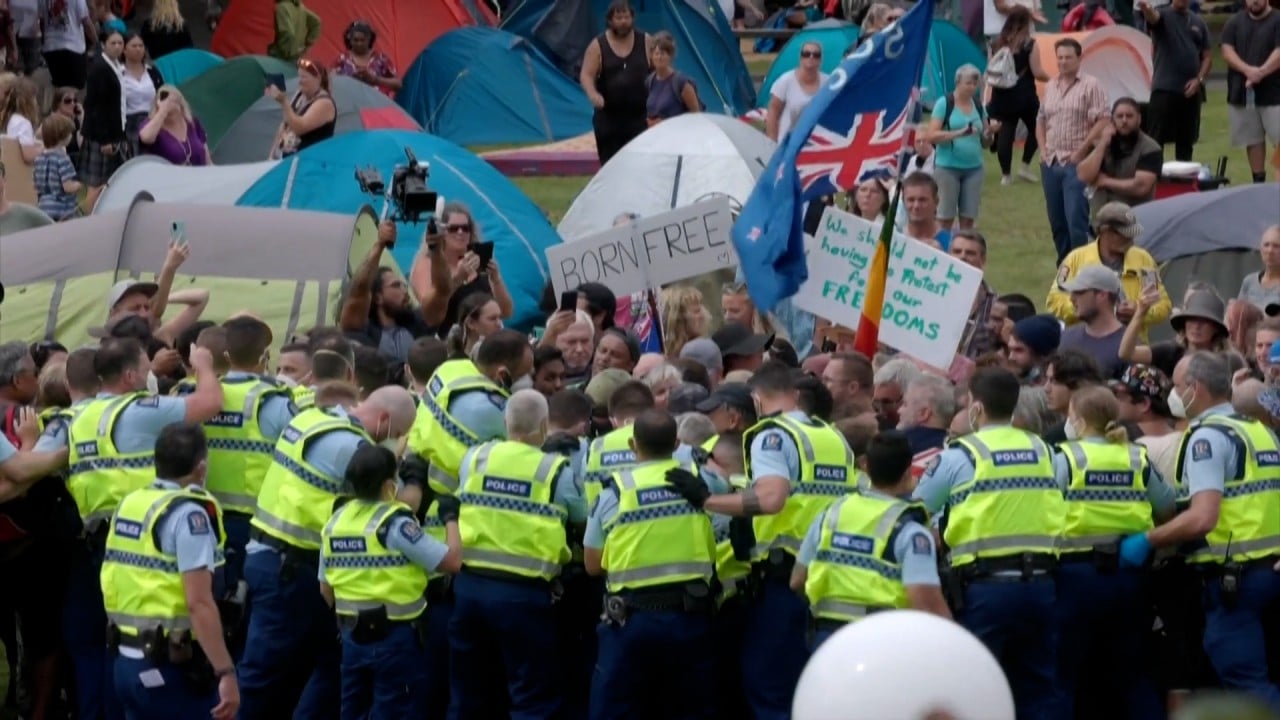
Coronavirus: Japan to relax strict border controls; Thai couples urged to mask up for Valentine’s Day sex
- Japan’s government will start accepting more than 1,000 foreign workers and students a day this month
- Elsewhere, anti-vaccine rallies picked up in numbers in New Zealand and Australia, with protesters blocking roads and disrupting public events
The government will start accepting more than 1,000 people a day this month and will gradually raise the cap to several thousand.
“We will take into account accumulated scientific knowledge on the Omicron variant, changes in infection conditions inside and outside Japan, and other countries’ border control measures,” Japanese Prime Minister Fumio Kishida told reporters in Tokyo.
Kishida’s remarks followed criticism of the entry ban from many academic and business leaders. The measure has prevented international students from entering Japan, prompting some to consider alternatives such as South Korea.
The business community, which is facing a chronic labour shortage, has asked for the ban to be lifted.
The controls, put in place in late November as the Omicron variant started to spread, are by far the strictest among the Group of Seven nations.
Thai couples urged to mask up for Valentine’s Day sex
Daily coronavirus case numbers in the Southeast Asian tourism hub have climbed from about 8,000 at the start of the month to almost double in the past fortnight, prompting the government to keep containment measures in Bangkok and nine other provinces to curb the outbreak.
Health authorities have expressed concerns this February 14 could exacerbate the trend, while acknowledging people have sex on other days too.
“Covid isn’t a sexually transmitted disease, but catching Covid is possible through close-contact breathing and exchanging saliva,” Bureau of Reproductive Health director Bunyarit Sukrat said on Friday.
He recommended couples perform antigen tests before their date night to prevent passing on the virus to their partner.
Lovers are urged to “avoid face-to-face sex positions and deep kissing” and use contraceptives if they wish to avert unwanted pregnancies, he said.
“If possible, wearing face masks while having sex can help reduce Covid risks,” Bunyarit said.
The holiday is popular across the kingdom and considered an auspicious day for couples to tie the knot.
There are often long queues at marriage registration offices, especially in the Bangkok district of Bang Rak, which translates to “love district” in the Thai language.
New Zealand, Australia protests gain in numbers
Several thousand protesters gathered at Canberra’s major showgrounds, forcing the cancellation of a popular charity book fair, with organisers saying they opted to put their patrons’ safety first. Police said three people were arrested, but overall the crowd was “well behaved”.
Protests remain relatively small in highly vaccinated New Zealand and Australia, where overwhelming majority of population supports inoculations. However, the movement has persevered, with rallies occasionally turning violent.
Australia Prime Minister Scott Morrison urged demonstrators to keep their protests peaceful.
“My message to them today is Australia is a free country and they have a right to protest, and I would ask them to do that in a peaceful way and a respectful way,” Morrison told reporters in Sydney.
Australian opposition leader Anthony Albanese, speaking at a media conference in Sydney, said the rallies were not going to gain widespread support. “Go home,” he told the demonstrators.
Police put up new barriers in Wellington’s parliament grounds on Saturday and said they would maintain a strong presence over the weekend.
New Zealand media footage showed one person being stretchered from the rally, carried by paramedics and police. No arrest had been made as of midday on Saturday, according to the police, who arrested more than 100 people on Thursday.
New Zealand logged a daily record of 454 community virus cases on Saturday.
A country of five million people, New Zealand has reported just under 19,000 confirmed cases and 53 deaths since the pandemic began. About 94 per cent of eligible people are vaccinated, with shots mandatory for some staff in frontline jobs.
The country’s borders are still closed, however, with tens of thousands of expatriate New Zealanders facing being cut off from families. Many tourism businesses are struggling to stay afloat.
In neighbouring Australia, which is opening its borders to tourists later this month, 94 per cent of those aged 16 and over are double-vaccinated, but the country is still battling a wave of the Omicron variant.
There were at least 64 coronavirus-related deaths reported across Australia on Saturday.
South Korea cases hit fresh record
Reporting by Reuters, Agence France-Presse, Bloomberg


